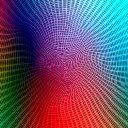Code: Select all
unsigned char *loadJPEGfromfile(const char *filename,int widp, int heip)
{
//this function loads into RAM, not VRAM
int bufferwidth;
int pixelformat;
int unknown;
unsigned int sig_read = 0;
int bit_depth, color_type, interlace_type, x, y;
u32* line;
FILE *fp;
int wid, hei;
wid = RoundUpPow2(widp);
hei = RoundUpPow2(heip);
int maxWid, maxHei;
/* This struct contains the JPEG decompression parameters and pointers to
* working space (which is allocated as needed by the JPEG library).
*/
struct jpeg_decompress_struct cinfo;
/* We use our private extension JPEG error handler.
* Note that this struct must live as long as the main JPEG parameter
* struct, to avoid dangling-pointer problems.
*/
struct my_error_mgr jerr;
/* More stuff */
FILE * infile; /* source file */
JSAMPARRAY buffer; /* Output row buffer */
int row_stride; /* physical row width in output buffer */
/* In this example we want to open the input file before doing anything else,
* so that the setjmp() error recovery below can assume the file is open.
* VERY IMPORTANT: use "b" option to fopen() if you are on a machine that
* requires it in order to read binary files.
*/
if ((infile = fopen(filename, "rb")) == NULL) {
//printf(stderr, "can't open %s\n", filename);
return 0;
}
/* Step 1: allocate and initialize JPEG decompression object */
/* We set up the normal JPEG error routines, then override error_exit. */
cinfo.err = jpeg_std_error(&jerr.pub);
jerr.pub.error_exit = my_error_exit;
/* Establish the setjmp return context for my_error_exit to use. */
if (setjmp(jerr.setjmp_buffer)) {
/* If we get here, the JPEG code has signaled an error.
* We need to clean up the JPEG object, close the input file, and return.
*/
jpeg_destroy_decompress(&cinfo);
fclose(infile);
return 0;
}
/* Now we can initialize the JPEG decompression object. */
jpeg_create_decompress(&cinfo);
/* Step 2: specify data source (eg, a file) */
jpeg_stdio_src(&cinfo, infile);
/* Step 3: read file parameters with jpeg_read_header() */
(void) jpeg_read_header(&cinfo, TRUE);
/* We can ignore the return value from jpeg_read_header since
* (a) suspension is not possible with the stdio data source, and
* (b) we passed TRUE to reject a tables-only JPEG file as an error.
* See libjpeg.doc for more info.
*/
/* Step 4: set parameters for decompression */
/* In this example, we don't need to change any of the defaults set by
* jpeg_read_header(), so we do nothing here.
*/
/* Step 5: Start decompressor */
(void) jpeg_start_decompress(&cinfo);
/* We can ignore the return value since suspension is not possible
* with the stdio data source.
*/
/* We may need to do some setup of our own at this point before reading
* the data. After jpeg_start_decompress() we have the correct scaled
* output image dimensions available, as well as the output colormap
* if we asked for color quantization.
* In this example, we need to make an output work buffer of the right size.
*/
/* JSAMPLEs per row in output buffer */
row_stride = cinfo.output_width * cinfo.output_components;
/* Make a one-row-high sample array that will go away when done with image */
buffer = (*cinfo.mem->alloc_sarray)
((j_common_ptr) &cinfo, JPOOL_IMAGE, row_stride, 1);
/* Here we use the library's state variable cinfo.output_scanline as the
* loop counter, so that we don't have to keep track ourselves.
*/
int c;
x=0;
y=0;
unsigned char *output,*outptr;
size_t sizediff;
sizediff = wid*hei*4;
int tsize = wid*hei;
c=0;
ramaddr = (unsigned int)memalign(16,sizediff);
outptr = output = (unsigned char *)ramaddr;
for (y=0;y<hei;y++) {
(void) jpeg_read_scanlines(&cinfo, buffer, 1);
for (x=0;x<wid;x++){
int r = 0xff;
int g = 0xff;
int b = 0xff;
outptr[(int)((x*4)+(y*wid*4))] = buffer[(x*3)];
outptr[(int)((x*4)+(y*wid*4)+1)] = buffer[(x*3)+1];
outptr[(int)((x*4)+(y*wid*4)+2)] = buffer[(x*3)+2];
outptr[(int)((x*4)+(y*wid*4)+3)] = 0xff;
}
}
/*
while (cinfo.output_scanline < cinfo.output_height) {
(void) jpeg_read_scanlines(&cinfo, buffer, 1);
}*/
/* Step 7: Finish decompression */
(void) jpeg_finish_decompress(&cinfo);
/* We can ignore the return value since suspension is not possible
* with the stdio data source.
*/
/* Step 8: Release JPEG decompression object */
/* This is an important step since it will release a good deal of memory. */
jpeg_destroy_decompress(&cinfo);
/* After finish_decompress, we can close the input file.
* Here we postpone it until after no more JPEG errors are possible,
* so as to simplify the setjmp error logic above. (Actually, I don't
* think that jpeg_destroy can do an error exit, but why assume anything...)
*/
fclose(infile);
/* At this point you may want to check to see whether any corrupt-data
* warnings occurred (test whether jerr.pub.num_warnings is nonzero).
*/
return output; Thanks.
